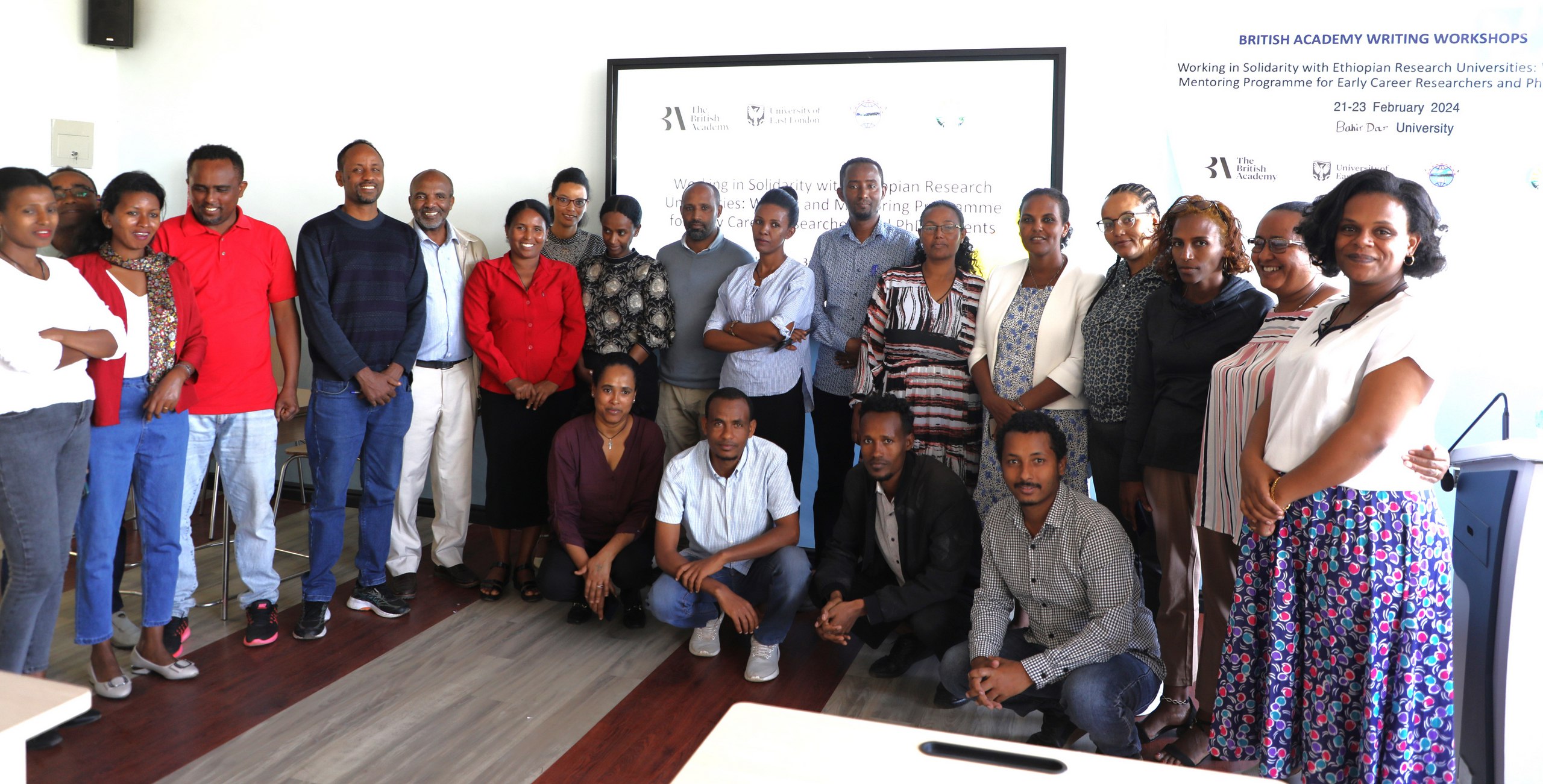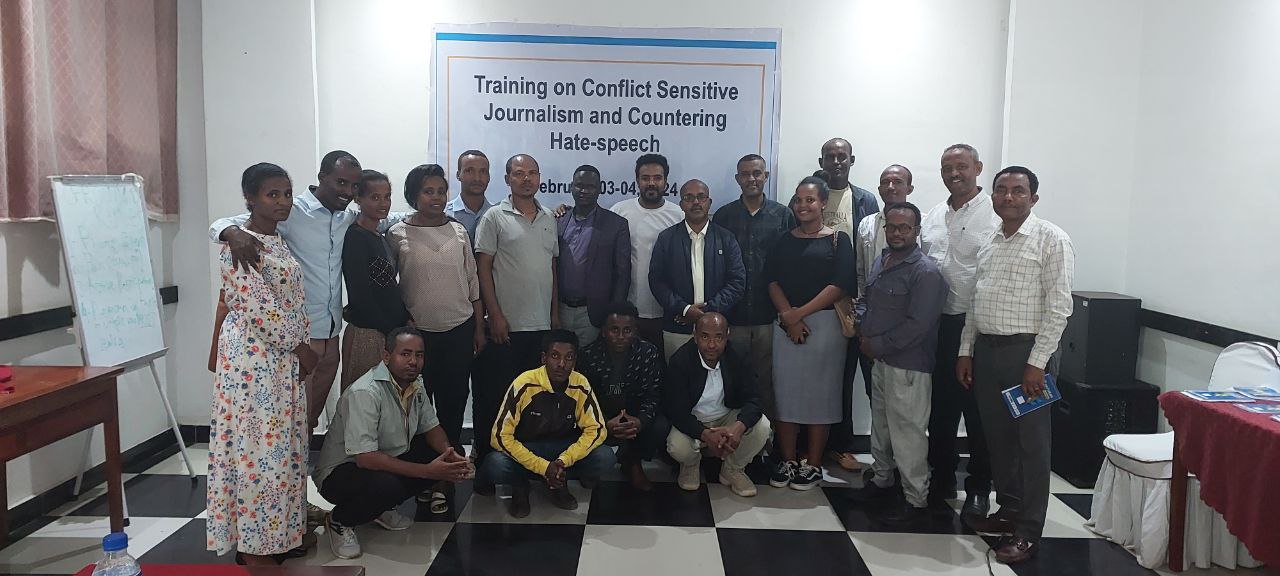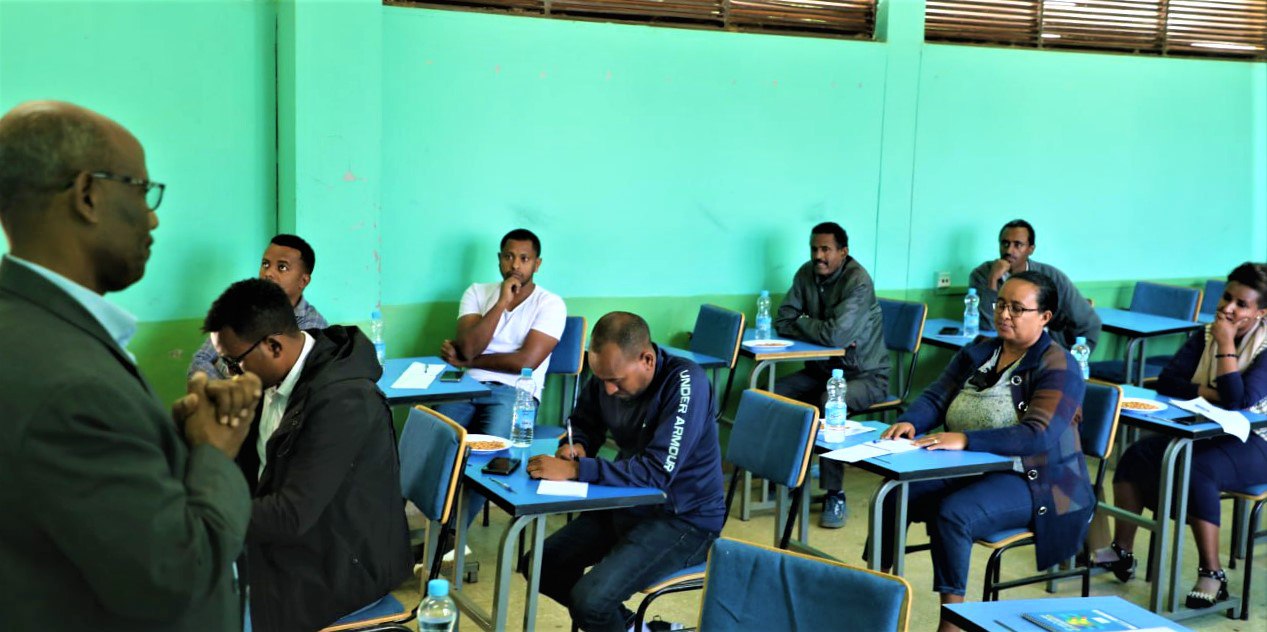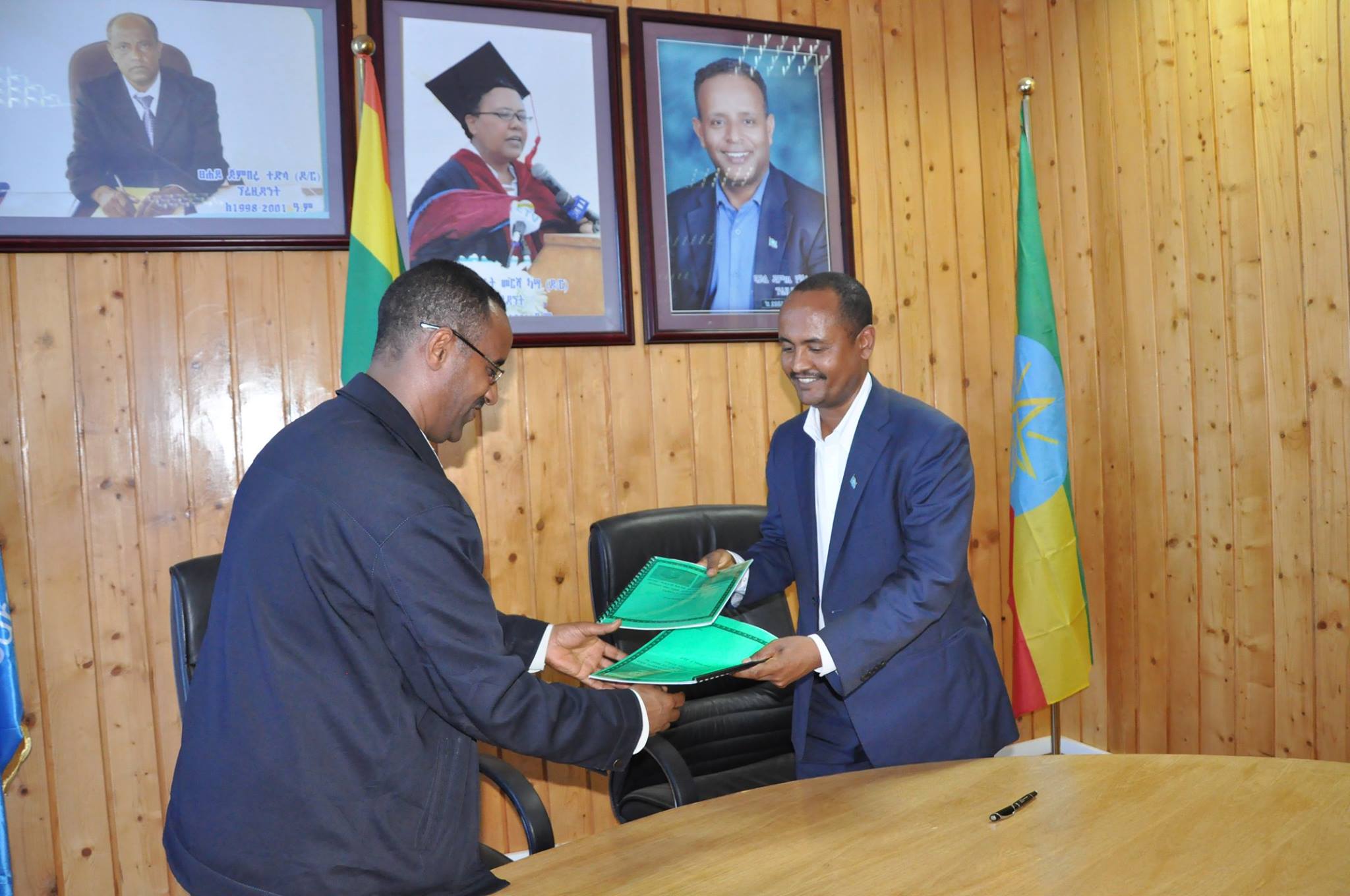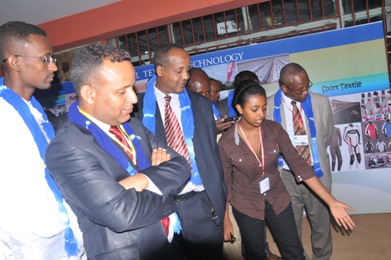In an event that was organized on April 5, 2014, Bahir Dar University honored scores of staff who excelled in research and publication. The objective of the event was to stimulate academic staff to engage in research and help them contribute their part in realizing the vision of the University, a vision of becoming one of the premier research universities in Africa by 2025. Over 70 people attended the event. During the event, the president of the University, Dr Baylie Damtie, awarded certificates of recognition to nine colleges and faculties for their good work in publishing, and to 32 academic staff who published from 3 to 11 articles in prestigious journals in just one year. Three top researchers were awarded a special offer, an equivalent of a gold medal. The offer was to choose and visit a prominent African University or a research institution of international standing in the researcher’s own field. They are expected to visit it for one week and return with lessons learned that will practically be applied here in the University. Dr Baylie promised to maintain this tradition of honor every year. After an introduction by Dr Tesfaye Shiferaw, vice president for Research and Community Services, about the concept of a research university, Dr Melaku Wale, research director of the University, presented a summary of journal articles published by academic staff during the last one year. A total of 270 journal articles were published by 119 authors in 170 journals that were published around the world. According to his report, the number of research activities, staff engaged in research and amount of budget allocated for research has steadily increased over the past three years (2011 to present). After the award ceremony, a panel of senior researchers (Dr Mulugeta Kibret, Dr Tadesse Amsalu, Dr Enyew Adgo and Mr Worku Yaze) convened and discussed on the following issues. Dr Baylie posed the questions to the panel members turn by turn. Panelists responded to each question their own way. 1.What motivates academic staff to do research? Responses: Themes be identified, declare research is a responsibility of every staff member, doing research improves one’s career, solves problems of the society, results can be used for teaching. For a student, the purpose of research may be a desire to get a degree or a desire to solve societal problems. 2.How do you increase the number of quality research? Quality research underpins our status in research in Africa. Responses: constantly upgrade research skill (staff and students), supply inputs (labs, offices, etc.) have research agenda in place which any group picks as required, seek funds, create conducive environment for research, promote networking and linkages, revise themes constantly, devise incentive or motivation mechanisms, inherent instinct for research is important, eliminate bureaucracy in research finance administration, launch honorarium schemes to free staff obsessed with solving meager incomes. Meager incomes prevent staff from exploiting their potential. Groups that write projects and win research funds must be officially recognized. High impact factors of publications may be achieved if we use international standard research equipment and procedures. Joint researches may help us bypass the requirement for sophisticated equipment because we can get them from the partnerships. High impact factor journals accept manuscripts that are conducted using state-of-the-art technology and equipment. We may have to subscribe for journals that demand subscription. Local journals must be improved. We are not even able to access our own journals because we publish them in journals that are not ours. We need to publish research results in proceedings for easy access locally and otherwise. Experience sharing tours are necessary (abroad and local). Higher university officials should know the potential of their own staffs. 3.Does input matter? Why do we not see research progressing in fields where hard facilities are not a prerequisite (example mathematics)? Responses: Even in Africa, Ethiopian Universities are not in the list of research universities. Systems for ranking research universities vary. Ranking also considers availability of inputs and material resources, without which ranks significantly fall and you are not going to be in the list. Incentive schemes, skill upgrading, joint projects are all important. Your papers are like your children who you love most. Some academic staff tend to be attracted to projects that offer economic benefits. The danger here is the allegation that these may be donor driven, which may be contrary to your best interest. Our journals seriously suffer from substandard English language. 4.Take your field of study as an example and state where you stand in terms of research (taking Africa as baseline)? Responses: no benchmark as of now, not even local ones surveyed, a homework for us. Hard data are required, but nevertheless, we see other high profile universities in Africa such as Mekerere, Kenyatta, Stellenbosch, etc. To be a contender, we need to choose the criteria because criteria vary. Criteria may include, among others, number and quality of papers. To publish in prestigious journals, we need to work in partnership with other advanced institutions (universities) around the world who have sophisticated infrastructure. We can benefit from those resources until ours are in place. Conclusions (panelists): Internalize the concept of research, establish systems for monitoring and evaluation, improve finance process (open LC?), promote synergy and eliminate duplication of effort, promote interfaculty and interdisciplinary collaboration. Today’s forum must be accessible to the lowermost structure too; it should not be restricted to a small segment of the University community. Issues raised today should be resolved right away and we should never raise them next time we meet (issues such as facility, financial hurdles). Today’s event was stimulating. Many of us have changed sides in favor of our university. The top leadership should focus on creating partnerships, not on routine activities. Promote sense of accountability and competitiveness. Honorarium frees staff off from the bondage of survival. What stage does the university find it itself now? Finally Dr Baylie suggested the following issues: Today’s congregation was fruitful. The proceedings should be posted in the website for others to access it. We will organize a similar forum for Postgraduate programs and also for Research centers English language issue will be solved soon. We have established contact with Oklahoma and we will soon have an expatriate staff in place who will be stationed in the new building. Data analysis will also be considered. SPSS alone should not be the one we have to use The Deans are expected to lead the research but today many are not here How to establish partnerships. We will sponsor our staff to do oral presentations in genuine conferences around the globe and at the same time expect them to establish partnerships. This is one strategy we shall adopt in the near future. Beware of gamblers such as the ones we see in West Africa or elsewhere. We also send teams of researchers and leaders to establish chosen partnerships (such as the one we did in Norway this past week). Please upload your CVs in the website which helps attract potential partners. The University administration also shall launch partnerships. Research fund utilization. As to the university administration, we really want to settle financial transactions by results rather than vouchers and receipts. We shall move towards that as far as we can go. We shall improve our website, our gateway to the world. Just 119 of our 1500 academic staff published papers this past year. In terms of percentage it is low. However, if they are the finest possible, they will be enough. We do not expect everybody to excel. Just a few individuals can make it. Therefore, we need to overcome the challenge of basic needs of our staff, i.e., ensuring family survival and maintenance/subsistence. We need to provide them housing first and provide other necessities step by step. At this juncture, we want to reiterate the devotion of the University management to promote the research. By Melaku Wale(PhD)

